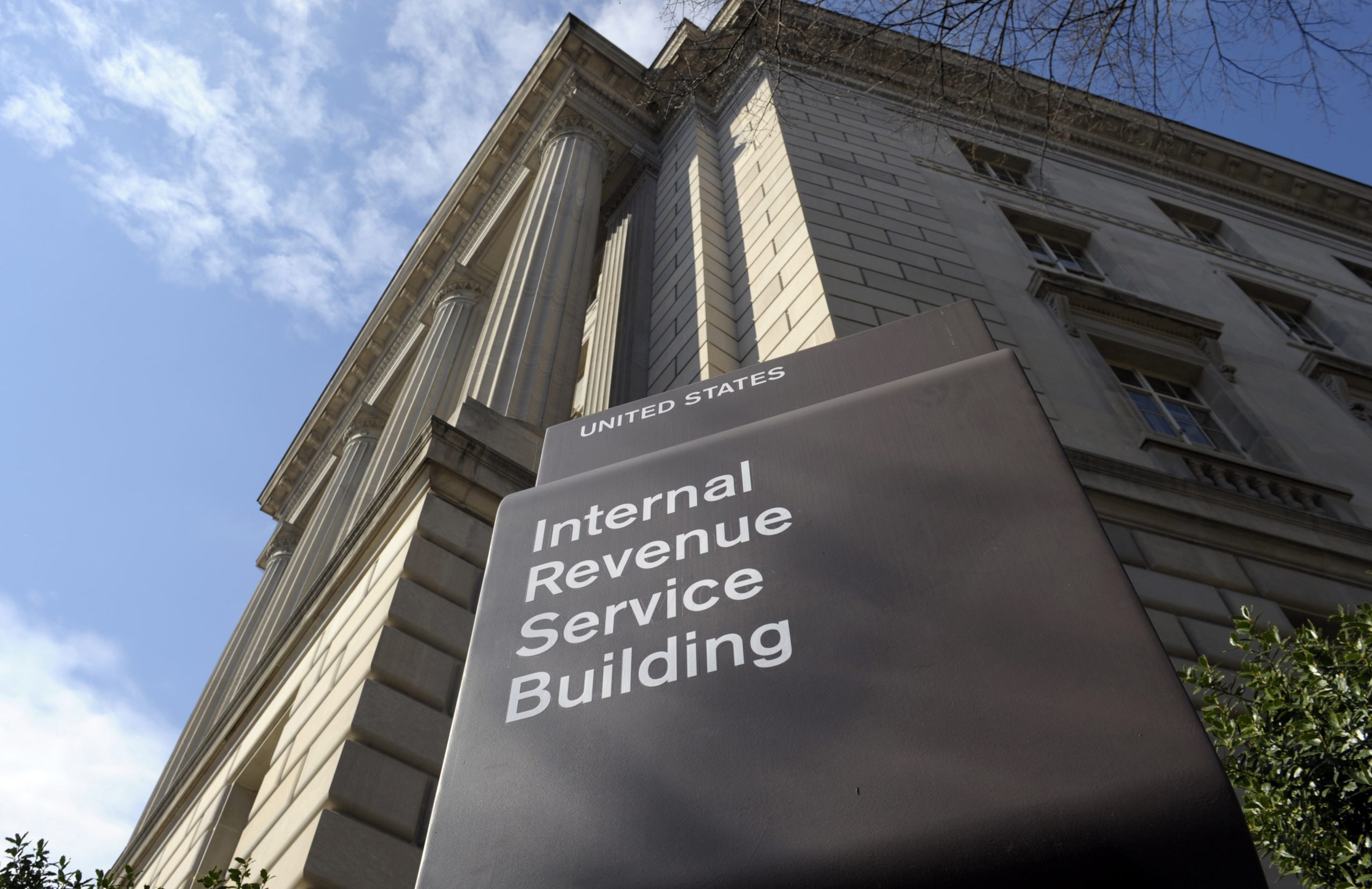IRS FAQs
Frequently Asked Questions (FAQs)—IRS Tax Problems and IRS Tax Debt Relief. The IRS Offer in Compromise Program Defined
1. What is an IRS Offer in Compromise?
In most cases, an IRS Offer in Compromise is a way to settle your IRS debt for less than the balance due, because you are unable to pay the full amount. You are basically offering the IRS something they could not take from you…something over and above what they could collect.
2. Do I qualify for an IRS Offer in Compromise?
If you can afford to pay your IRS debt in full, either over time or all at once, then you do not qualify for an Offer in Compromise.
If your assets, such as equity in real estate, retirement accounts, etc., are more than your IRS debt, then you do not qualify for an Offer in Compromise.
If you can’t afford to pay your IRS debt and your assets are significantly less than your IRS debt then you may qualify for an Offer in Compromise.
3. What are the “allowed expenses?”
You are allowed to spend up to certain amounts for your personal expenses such as food, clothing, housing, utilities, automobile, etc.
Some of these amounts, food and clothing for example, are regulated by the National Standards, which means that everyone in the U.S. is allowed the same expense.
Other expenses, such as housing and utilities, are based on where you live.
For example, a family of three living in Bailey County, Texas, is allowed only US$830 in housing and utilities. However, if that same family lives in New York County, New York, they are allowed up to US$4,976 in housing and utilities.
The logic of the IRS here is that you should not be allowed to make payments on your mansion and Ferrari, and not pay the government.
One of the most important tasks when filing an Offer in Compromise is to understand the interplay between the various allowed expenses to ensure you get the best deal available.
4. If I do not qualify for an IRS Offer in Compromise, what alternatives do I have?
If you can’t settle your IRS tax debt with an Offer in Compromise, you have two options:
- Set up an Installment Agreement. With this, you must pay the IRS each month until the applicable statute of limitations has expired. When the statute of limitations has run out, any remaining debt is eliminated.
- Request to be considered “temporarily uncollectable.” If you do not qualify for an IRS Offer in Compromise and you can’t afford to make monthly payments, then you can request that your account be placed on hold until your situation improves. The IRS will review your income and expenses each year and require you to make payments when you can afford to do so.
5. What is a “statute of limitations?”
In the case of an IRS Offer in Compromise, a statute of limitations is the length of time the IRS has at its disposal to collect taxes from you.
The IRS has 10 years to collect once you have filed your tax return or after your IRS tax debt has been assessed. “Assessed tax debt” generally refers to debt which is the result of an IRS audit.
Once the statute of limitations runs out, your IRS tax debt is eliminated.
For example, you file your 2009 federal personal income tax return on April 15, 2010, and owe US$100,000. The IRS has until about April 15, 2020 to collect that amount from you. If you made monthly payments totaling US$25,000 over 10 years, the remaining US$75,000 of debt is eliminated and you get a fresh start.
6. I am unemployed. Do I qualify for an IRS Offer in Compromise?
In general, if you are unemployed you do not qualify for an Offer in Compromise. The IRS will wait until you’ve been employed for around six months and then determine your ability to make monthly payments.
While you are unemployed, you should qualify to be listed as “temporarily uncollectable” (see above). When your income has stabilized, you might submit an Offer in Compromise.
Note:“Unemployed” means that you are capable of work and under age 65. Someone over age 65, or disabled and unable to work, is considered retired and may qualify for an Offer in Compromise.
7. If my IRS Offer in Compromise is rejected, what will happen?
In most cases, the IRS person working your Offer in Compromise will set up an Installment Agreement or list you as “temporarily uncollectable” if you do not qualify for an Offer in Compromise.
If you disagree with the rejection of your Offer in Compromise you can file an appeal, which will move your case to a more senior IRS person in your region. This person may have more authority to consider your unique circumstances.
8. How long does an Offer in Compromise take to complete?
It generally takes four to 12 months for your Offer in Compromise to be assigned to an IRS agent to work on. Then, it may require two to three months for the case to be completed. The precise time will depend on the amount of the debt and the complexity of your situation.
If your Offer in Compromise is rejected and you file an appeal, this may take another six months or so.
9. Can the IRS collect from me while I am in the Offer in Compromise program?
The IRS is prohibited from collecting from you while your Offer in Compromise is pending. Also, the applicable statute of limitations is on hold while your Offer in Compromise is being considered.
For example, if your debt would expire on April 15, 2020, and your Offer in Compromise takes 12 months before it is rejected, then the IRS has until April 15, 2021 to collect from you.
10. Is it expensive to have a professional help with an Offer in Compromise filing?
Legal fees for an Offer in Compromise typically range from US$3,500 to US$25,000. Complex cases cost more, and these fees do not include the IRS US$150 filing fee or the 20% non-refundable deposit. We estimate the average cost of a case to be US$4,500.
11. What forms do I need for an Offer in Compromise?
Planning and preparing the documents for an Offer in Compromise are complicated and require lots of experience. We believe that 90% of the work for an Offer in Compromise is done prior to filing.
A typical Offer in Compromise requires:
- IRS Form 656 – Offer in Compromise Booklet and Form;
- Form 433-A – Collection Information Statement for Wage Earners and Self-Employed Individuals;
- Form 433-B – Collection Information Statement for Businesses;
- Supporting documentation: You will need three months of documentation on just about every expense and income you have. These amounts include pay stubs, credit card statements, mortgage or rent statements, investments, transportation, W-2s, tax returns, etc.
12. What forms are required for an Installment Agreement or a request to be considered “temporarily uncollectable?”
Just like in the case of an Offer in Compromise, you will need Form 433-A and/or Form 433-B, along with the supporting documentation.
13. After the forms are complete and the Offer in Compromise filed do I need a tax attorney to negotiate the best deal? Will a tax attorney get me a better deal than I could get on my own?
The IRS Offer in Compromise program is very structured, with hundreds of different IRS agents handling thousands of cases. These agents receive a case, investigate whether the information provided is complete and accurate, apply the National and Local Standards, look for exceptions, and then accept or reject the Offer.
Because very little negotiation occurs and the IRS agent has almost no ability to diverge from the allowed standards, an expensive tax attorney is not required in most cases.
This means that most work is done before filing the Offer in Compromise, and an experienced professional adds the most value in planning, preparing, and documenting the Offer. Also, just as important, a professional can determine if you qualify for an Offer in Compromise prior to its being filed, saving you thousands of dollars and months of time.
14. I have not filed all of my federal personal income tax returns. Can I still submit an Offer in Compromise?
No, all of your tax returns must be filed before you submit an Offer in Compromise or set up an Installment Agreement. Basically, the IRS will not deal with you until all of your tax returns are filed.
We are experienced in preparing delinquent returns of all types and will be happy to assist you.
15. Is the IRS required to give me an Offer in Compromise if I qualify?
No, the IRS is not required to grant you an Offer in Compromise simply because you qualify. If the IRS believes your income will increase, they are likely to deny your Offer in Compromise and list you as “temporarily uncollectable.”
For example, a real estate agent made US$150,000 in 2008, US$125,000 in 2009, US$45,000 in 2010, and files an Offer in Compromise in 2010 for back taxes owed. The IRS is likely to wait a year or two to see if the taxpayer’s income increases significantly. If it doesn’t, they may grant an Offer in Compromise in 2011 or 2012.
16. What about all of the TV and radio ads promising to settle my IRS debt for 10 cents on the dollar?
Any firm that files a large number of Offers in Compromise will have success stories. However, these are the exception, not the rule.
For example, one of our clients owed US$250,000 to the IRS and settled his Offer in Compromise for US$7,500, or three cents on the dollar. This is the type of case we could use in our advertising.
Well…this client was 71 years of age, was living on Social Security and Disability income, and had no assets. I suspect that this more-detailed description fits very few of those of you reading these FAQs.
Therefore, every case and set of circumstance is different, and careful planning, preparation, and documentation of an Offer in Compromise are the keys to success.
17. Why are there so many websites promising to settle my IRS debt for less?
In fact there are only a few national firms marketing IRS tax debt settlement services. Also, there are many small local law firms and CPA offices offering this service.
However, there are hundreds of marketing websites. These are small companies, oftentimes guys in their basements, who put up a website to generate marketing leads on their spare time. They then sell these leads to an Offer in Compromise mill, or a tax person just starting out and who is not able to get business on his own. Our research indicates that the majority of sites on the Web are marketing sites.
18. How much does it cost to file an IRS Offer in Compromise?
The filing fee for an IRS Offer in Compromise is US$150. Also, you must submit a non-refundable deposit of 20% of your Offer amount.
For example, if you owe US$100,000 and offer to settle your debt for US$10,000, your filing fee is US$150, and your deposit is US$2,000 (20% of US$10,000).
19. What does the IRS say about the national Offer in Compromise mills?
Since 2004, the IRS has continually informed the public about unscrupulous promoters who prepare and file Offers in Compromise they know will be rejected, just to make the fee. IR-2004-17, issued on Feb. 3, 2004, warns that “[…]some promoters are inappropriately advising indebted taxpayers to file an Offer in Compromise (OIC) application with the IRS. This bad advice costs taxpayers money and time.”
20. Have government agencies shut down any of the national IRS Offer in Compromise mills?
Yes, state and federal agencies have stepped in to protect taxpayers from OIC mills.
For example, the Attorney General of California announced on Aug. 23, 2010 that he was suing the national firm of Roni Deutch for “victimizing thousands who sought her aid in dealing with the IRS.” He is seeking US$34 million in damages. For more information, click here to check the California Attorney General’s website.
In addition, California sought to enjoin Roni Deutch from doing business. Click here to read the legal brief.
In a second example, the Federal Trade Commission (FTC) took action against American Tax Relief, a national tax debt relief company, claiming ATC is a scam that swindled clients out of millions of dollars. At the FTC’s request, ATC was shut down and their assets frozen.
For more information, click here to go to the FTC’s website and here to read the news clippings.
In a third example, the Texas Attorney General has filed suit against TaxMasters, Inc. The Texas Attorney General’s office states that there are nearly 1,000 complaints about TaxMasters, Inc., and that are seeking restitution and fines on behalf of those harmed.
To quote the Attorney General’s press release, TaxMasters, Inc. “routinely misled customers about the nature of their tax resolution service agreements – and worse, attempted to enforce those improper agreements through unlawful debt-collection tactics.” To read more, click here to access the Texas Attorney General’s website. Also, for an article in the Houston Chronicle detailing the lawsuit against TaxMasters, Inc. click here.
According to an ABC News report, there are thousands of similar complaints. To see this report, click here.
21. What do the consumer protection and business review websites have to say about the national IRS Offer in Compromise mills?
There are many opinions and unverified statements on the Web, which should all be taken with a grain of salt. Here are links to a few websites that may be of interest:
-
Click here to go to a review of American Tax Relief.
-
Click here to read a review of JK Harris.
-
Click here for a review on Roni Lynn Deutch.
-
Click here to read about TaxMasters. To see more opinions on TaxMasters, click here and here.
-
Click here to go to an analysis of Power Tax Relief.









Leave a Reply
Want to join the discussion?Feel free to contribute!